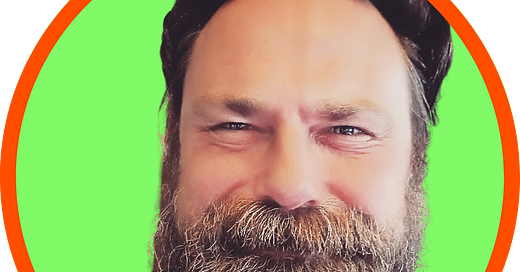This morning, during meditation, it occurred to me the difference between the times when I am drinking, and the times when I am free from compulsive alcohol use.
It involves perspective. When I am drinking, I can see only a few things in front of me — my immediate task at work, the time when I’ll be able to drink again, how much money I have, how much debt I have, and pretty much the negative and/or taxing stuff about life.
Until I get drunk, when I can then just about only perceive whatever music I’m listening to, or video I’m watching. Or whatever nefarious behavior I’m engaging in. (But even engaged in these things, my cognition is greatly disrupted and unclear.)
When I’m alcohol-free, however, my salience landscape opens. In fact, I think it has to open for me to stop drinking in the first place, but once it’s begun to open it floods.
All sorts of things come into perspective. Relationships, especially. And potentialities. Possibilities. Opportunities. In general, a sense of despair becomes a position of gratitude.
And, with all of this beauty and activity, drinking suddenly begins to appear undesirable. Cravings wane, or even disappear.
This is important because, without this sense of potential abundance, it is very difficult to do what SMART Recovery terms “Building and Maintaining Motivation.” Why would I want to be sober if life simply sucks? There has to be some motivation — and it can’t simply be a goal, obtainable or otherwise. There has to be some kind of sense that today is a tolerable thing, worthy of sustaining.
At Mass yesterday, the Gospel was from the first book of Mark. Here’s David Bentley Hart’s translation of a portion of it.
After this, Jesus walks past two brothers fishing and inspires them to give up their entire lifestyle — leaving their fishing nets behind to become Followers of the Way.
DBH’s phrase “change your hearts” is often translated as “Repent!” The Greek word is metanoia, literally a “change of mind” (although we must remember that mind is a larger idea in ancient and Eastern culture that does not simply mean “the brain” or “the intellect”).
I argue that this is the very type of salience broadening I’m speaking of. And it’s imperative to experience it right now, because literally every thing depends on it. We can’t be good and respectful to one another if we are bitter and dejected, and can’t celebrate the goodness of the world “as it is in heaven.”
Every Sunday I pray two prayers at Church. (Well, actually five or more, but these two are specifically built into the liturgy.) One refers to creation as possessing things both “visible and invisible.” Another asks for assistance to enact the will of God “on Earth, as it is in Heaven.”
Both allude to a quality of life which we are being asked to see: we are asked to transform our narrow perspective into a broader one which is more life-affirming and Eudaimoniac — one which prompts our flourishing and strengthens us with the vigor of Virtue.
Sometimes, circumstance makes it difficult to tap into this abundant awareness. But, even when my serotonin and dopamine are not on my side, I can choose to practice fidelity to this greater myth. And I can choose this even when it seems naively optimistic.
And this autopoietic capability is always available, provided I remember to turn toward it, rather than away. And that brings me hope.





